There’s a growing number of medical doctors encouraging their patients to transition to a plant-based diet, a trend that gives me great hope. But what do those doctors actually eat when they’re home? Medical professionals are notoriously busy, and making really good dinners takes time. How do they manage to feed themselves and their families? As Doctor Yami Cazorla-Lancaster, the host of the popular podcast Veggie Doctor Radio, told me: it doesn’t have to be complicated or difficult. I interviewed Dr. Yami to find out more about how this vegan pediatrician feeds her family.
Dr. Yami, you are one very busy woman. As a board-certified pediatrician, you run your own medical practice in Yakima, Washington. You are the kind of doctor everyone wishes they had, taking your time with every patient instead of rushing through appointments, and even giving your cell phone number to your patients! You produce a twice-weekly podcast called Veggie Doctor Radio on which you interview other health and nutrition experts and share your own best tips and strategies. You run intensive coaching programs to support women seeking personal growth and lifestyle changes. You recently published a book about intuitive eating. Plus, you have two boys now aged 10 and 15, and you are married to another physician who, I am sure, also has a full schedule. Phew! Please take me through your weekly routine.
Every day is a little bit different. On Mondays, Wednesdays, and Fridays, I see patients in my office and I am there from about 8:30 a.m. to 5:30 p.m. When my kids are in school, which they are right now, I usually drop them off and go the office to see my patients, take 30 minutes for lunch, finish seeing patients until it’s time to come home. On Fridays, if I can, I finish by mid-afternoon so I can pick up the kids and start the weekend early. On Tuesdays I work from home, recording podcasts in the morning and seeing patients via telemedicine in the afternoon. Thursdays are my day off to take care of family business and tie loose ends, plus I also do coaching on that day.
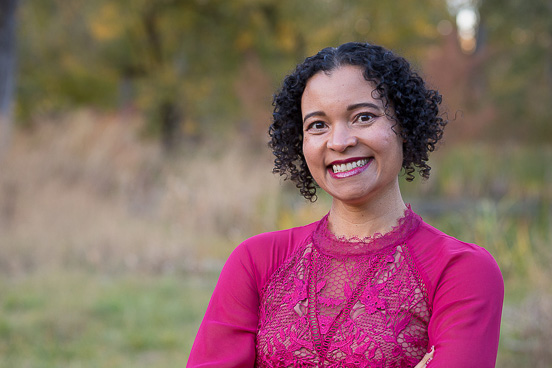
We try to have dinner together most nights, following a cycle of simple themes. Then after we eat my sons clean the kitchen, which is nice, and then after everything is clean and ready to go we sit down on the couch and watch one or two episodes of The Simpsons. That’s been our routine recently, because we finished the Mandalorian. Until the Mandalorian comes back in October we are going to go back to the very beginning of The Simpsons and we are currently on season 6.
Would you like to tell me a little more about your family’s journey as far as plant-based food goes? Did your husband and you hop on the healthier-eating train together?
I was the one that initiated it, and it has been over 9 years now. But my husband is very supportive, he had no objections about me raising the kids plant-based or changing my cooking to all plant-based. And I will say that we ate pretty healthy before we went plant-based. We had the “healthy” standard American diet, which meant chicken breast and low fat cheese and those kinds of things. We were already health-conscious with our boys, but when we changed to a plant-based diet it made a big difference. My constipation resolved, as it did for my youngest son. I just felt it was the best thing to do for their long-term health and well-being. And of course also for ethical, compassionate, and environmental reasons. It really hasn’t been difficult for us because when I transitioned my youngest one was 18 months and my oldest one was 6 years old. It seemed like it was pretty fluid and easy. I got to learn how to cook new things and open my repertoire as far as using all kinds of different grains, beans, and vegetables. I feel like the change actually gave us more abundance and a greater diversity of foods rather than limiting us. It did the opposite of what most people think will happen.
How do the kids feel about this way of eating, seeing that many of their friends no doubt pack different lunches and snacks.
They are very supportive. Like I said, they were pretty young when we transitioned, so they don’t complain about it, they are not embarrassed about it, they do talk to their friends about it. They have never told me that they have ever been teased about it or made to feel less-than about it, as I hear happens sometimes. It was more the opposite. They have friends who are curious about it and ask them questions about their way of eating. They are very happy to talk to their friends about those things. We haven’t really had a problem about that. They do take their own lunches, they eat pretty simply, it’s not difficult. But I will say that when it comes to celebrations and birthdays and when they are at school and there are parties, I have allowed them to make their own choices. I don’t try to guilt or shame them about the choices that they make and I feel like that is a part of the intuitive eating journey. If they can learn to tune into their bodies and see how things make them feel, I feel like it’s the flexible approach, because they live in a non-vegan world. That’s how our family works.
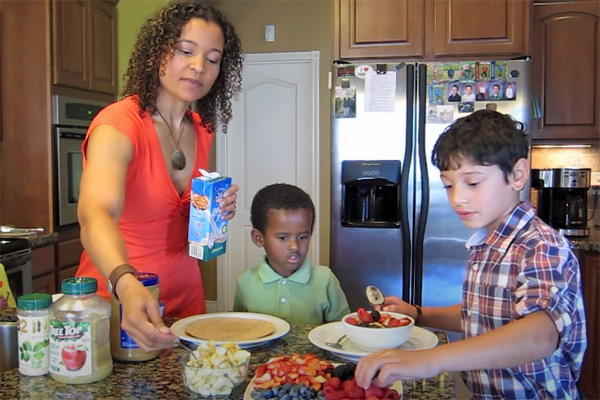
Dr. Yami in the kitchen with her kids in a 2014 Youtube video
There is a lot going on in your life, but I know that eating a healthy vegan diet is a top priority for you. What kinds of cooking habits and routines do you have in place to make the good meals and snacks happen?
I love to use my appliances, and I am a very routine person. I usually do shopping just once a week, I have a list of the usual things I buy. We eat pretty simply when it comes to breakfast and lunches. That’s pretty much determined, I already know what we are gonna eat. And then for dinners, at the moment, we have theme nights. Tuesday is always Taco Tuesday which everybody loves and we all look forward to. Every Tuesday, I make tacos in a different way. It might be lentil-walnut tacos, or roasted garbanzo bean tacos, or black bean tacos, I try to keep it interesting and change it up. Wednesday is usually pasta night, or risotto. Thursday is leftovers. Friday we generally eat out or order in, right now in the covid era we’ve been ordering in. Saturday is a toss up, sometimes we may order in or have leftovers, and Sunday I usually make our special veggie sandwich night. As for Monday, it’s just like a “find something that works” night.
We usually eat out once to twice a week at the most, and we have very similar things that we usually eat out. Mexican is usually the favorite, and we do things like MOD Pizza because it’s very vegan friendly. We also enjoy Mediterranean food, like hummus and falafels. They are all very veggie-friendly foods. It’s just nice not to have to cook for one or two nights per week. But every other meal for the week is made of things that we prepare.
As far as snacks, my kids are older so we don’t tend to have a regular snack routine, we are more focused on meals. But I do have food available for them. Now, when it comes to vacations and celebrations and stuff, I’ll say a favorite snack for them is going to be chips with salsa and guacamole! We love Mexican food and chips are definitely a favorite treat. But in general we don’t tend to snack a lot.
Do you have a meal planning routine? If so, what does it look like?
I have done all kinds of things, including using menu planning services, and I’ve planned my own too. But right now I just focus on themes. It works really well because it takes very little mental energy and everyone in the family loves it.
What does your weekend meal prep routine look like?
Wekend meal prep is super important because I take all my lunches to work. I like to do Buddha bowls and things like that. Every weekend, I am prepping rice and beans in my Instant Pot and making some sort of sauce. I make sure I have enough veggies, fresh or cooked, to go along with all those meals. Sometimes I will prep Mason jars of overnight oats because that’s so easy to take in the mornings and just heat in the microwave (although my younger son likes them cold). Those are kind of like the minimum things that I do. Sometimes if I get more ambitious I might make more, but not usually.
Weeknight cooking is very fast for me. I don’t mind coming home and throwing together a meal, because it doesn’t take a super long time. If it was a multiple-step recipe, it wouldn’t fly because I’m pretty tired then. But if I have planned to just make a certain kind of pasta this week, or tacos, I actually enjoy dinner prep. It’s a good transition for me to go from my intense work mode to “ok I’m home, I’m relax, I am making something delicious for my family and we’re about to sit down to dinner together.” It’s not stressful for me.
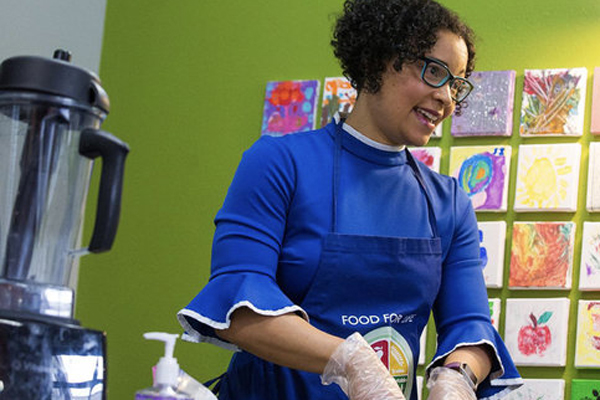
Dr. Yami gives a cooking workshop
So many of us parents of young (and not so young) children dread meal times. What are our kids going to eat? Are they getting enough nutrients? Are we doing a good enough job as parents feeding their growing bodies? How strict should we be about meals? Your book A Parent’s Guide to Intuitive Eating: How to Raise Kids Who Love to Eat Healthy helps moms and dads handle many of those anxiety-generating issues. What do you think is the most common mistake/misconception parents have about food and kids?
Parents are SO stressed out. They are so anxious. They feel like their kid is not eating enough in general or not eating enough vegetables in particular. The most common mistake or misconception of parents is to believe that they have to micromanage their children’s food, what they eat and how much they eat. I really want to encourage parents to get away from that approach. Trust your child’s appetite. Most kids are going to be typically-growing, typically-developing children that are able to access their intuition.
I like to bring up the division of responsibility by Ellyn Satter. The parent’s job is to determine what, when, and where. What are you going to make your child or prepare for your child? What you are going to meal plan? What you are going to buy? When are you going to have that meal or snack? And where will you eat: are you going to be sitting down at the table or at the breakfast bar? Then, the child’s job is to determine if and how much they are going to eat.
Parents: step back. You are not going to be crossing over into the child’s autonomy. You are going to trust them. And at the beginning, if you haven’t been giving the child autonomy, it’s going to feel really uncomfortable. It will feel really stressful. But over time it actually makes meal times more pleasant. You are not micromanaging everybody’s food. You are just paying attention to planning good healthy nutritious meals and stepping back and relaxing. Most children are going to do well with that.
For the rare cases that are struggling with specific problems, then you can get professional assistance. But for the majority of cases, applying the division of responsibility does the trick.
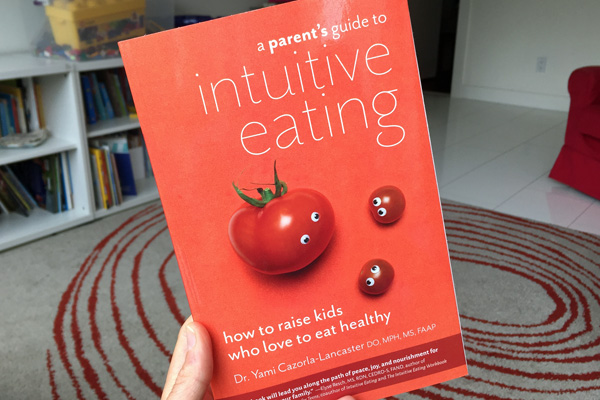
How should we go about making family meals more enjoyable and nourishing for all?
Start as soon as possible with making meals that have lots of whole plant foods including lots of fruits, vegetables, whole grains, beans, nuts, and seeds, and continue to expose the child over and over and over again. Don’t assume that if a child doesn’t like something one time, they are never going to like it. The more you expose them to it, the more likely they are to acquire that flavor. Don’t give up so quickly!
But also keep in mind that not everybody is going to like every single thing. If there are things that you know about your child likes, it can make it easy for you to make one meal that pleases everybody. Doing these food bars like make-your own tacos, pizza, or salad night helps. For example, when we do tacos on Tuesdays, I put out all the different taco fillings on the table and my kids can choose what they want to put in theirs, and that’s also true for my husband and me. There are all kinds of different foods that you can have all the different ingredients and then the child gets to choose what they put on their own plate. It gives them a greater sense of control, and it’s exciting. They have that independence in choosing what they want to eat.
Parents shouldn’t give up in exposing their children to different foods and in particular a greater variety of plant foods, and allow their kids some choice. But I don’t mean being a short-order cook. If you are going to make tacos, it’s taco night. You’re not going to make tacos for yourself and then feed one child a peanut butter and jelly sandwich and the other child macaroni and cheese. Everybody is going to have tacos, with topping options that make it acceptable to everybody.
You are not going to please everybody every time, especially if you have a big family and there are lots of different people to please. But it shouldn’t be that stressful. I have talked to moms who are spending hours in the kitchen making everybody a different meal. They never sit down for themselves to eat because they are so busy cooking! That’s just not sustainable or practical, and it leads to a lot of stress and maybe some resentment. It doesn’t have to be that way.
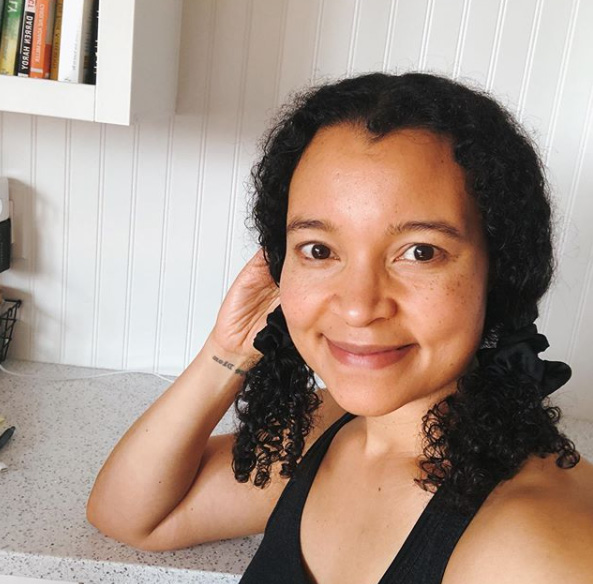
Follow Doctor Yami on Instagram
I know many parents who are working on bringing their family on board with a plant-based diet but who beat themselves up for using vegan processed food on occasion. What would you like to tell them?
One of the five pillars of healthy eating I talk about is flexibility.
80% of the time, eat as healthy as you possibly can for your lifestyle, your budget, etc.
20% of the time, you can have a little bit of flexibility.
That’s just the real world and the world we live in. We don’t live in a bubble. We have celebrations. We have parties. We have Saturday night ice cream runs. And it’s completely fine.
When you are at home, you have more control. You can bring healthier foods to the table, but don’t make it like: “This is heathy food, this is unhealthy food.” Here is a better message: “We eat these types of foods because they are health-promoting, they make us feel good, and these other types of foods don’t have as many benefits and sometimes they don’t make us feel good if we eat too much of them.”
The child is going to learn how to determine that for themselves over time if they aren’t made to believe that certain foods are bad or evil, or that they are bad if they eat that food. I think it’s important to be as neutral as we can about food, to be honest about where it comes from and what it does to our bodies. But it shouldn’t be scary. Don’t shame or blame.
Parents shouldn’t feel guilty either. Maybe we don’t eat 100% whole foods, we eat some processed foods, we definitely go on vacations, we have treats, we go to vegan restaurants (those are usually not whole foods!). I think that we just need to be realistic and live in the real world. And whenever we do that, overall, we end up doing really great. We end up providing lots of health-promoting foods for our children and everybody feels good and nobody feels shamed. We are all trying to do the best we can.
What is your number 1 tip for busy families who want to embrace a healthier lifestyle?
Do the best you can, including serving as many whole plant foods as you can into every meal and snack, and don’t stress out about it. You will improve as you learn, over time. You make little tweaks and you get better.
Favorite cookbook?
Dreena Burton’s Plant-Powered Families
Vegetable you don’t like as much?
Raw celery
Best pizza topping?
Chickpeas
Kids’ favorite snack?
Chips, salsa, and guacamole
Dinner dish you could happily eat every night?
Brown rice, some roasted garbanzo beans, roasted broccoli, and cheesy sauce – delicious!
Kitchen appliances you wouldn’t live without?
Instant Pot is my number one – but I also want to keep my air fryer and Vitamix if I move to a tiny house!
Most inspiring vegan/plant-based person?
Tabitha Brown – such a good example of how to be a positive, loving influencer that’s going for their dreams!
What gives you hope for the future?
Parents love their kids. I know that most parents are feeling guilty, they are feeling like they are not good enough, but what gives me hope is that parents really do love their children, they want to do what’s best for them, and with that I see that they are learning. They are here, they are reading this blog, and they are learning what they can to do the best for their children and for their families.
Connect with Doctor Yami, the vegan pediatrician
You can learn more about Doctor Yami’s work on her web site, listen to her podcast Veggie Doctor Radio, and follow her on Instagram. I encourage you to ask your local bookstore to order her book A Parent’s Guide to Intuitive Eating: How to Raise Kids Who Love to Eat Healthy from your local bookstore (also available online and as an e-book).
Could you use a meal plan template to make theme-based meal plans like Dr. Yami?
Check out my Meal Planning 101 post and get the template.
Psst! There are more meal planning templates and sample plans available in the templates and printables section.

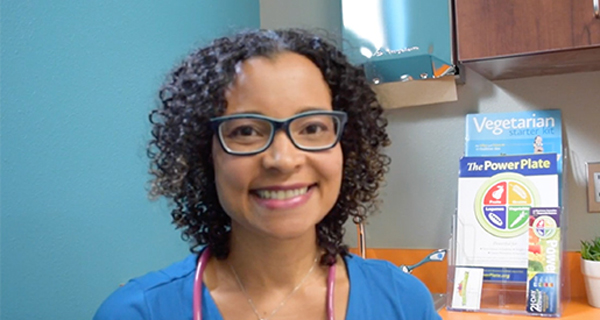


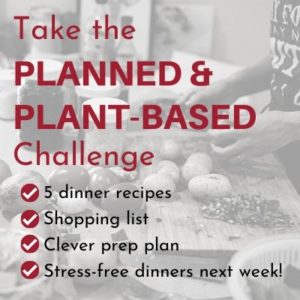
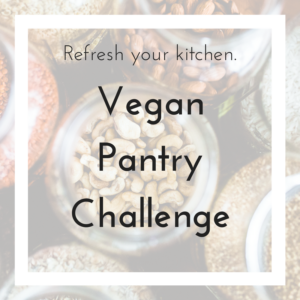
I am terribly worried about my 17-year-old son’s diet and physical health. Since Covid, DoorDash is his best friend. He loves junk food. He says he’s thinking of being a chef, but the only thing he cooks is meat. He’s pretty good at it, but it’s not healthy. I’m a very strict vegan, and eat one meal per day, and fast on two days/week. I can take care of my food, but not my son’s or husband’s. My son is overweight, and I see his patterns getting worse, not better.
Any advice for me? How do I get him to understand the importance of eating healthily?
Thank you!
Thank you for these helpful insights! I developed some nutritional deficiencies while tandem feeding on a predominantly vegan diet and am worried about my kids. I’m studying to become a holistic nutritionist to try to educate myself and others on eating for optimal health.
Thank you for this. Dr. Yami inspires me to want to focus my career more on healthy eating! What are some practical tips for when you’re out with kids at a party or other social event surrounded by unhealthy food? I’m most concerned about sugar, and my husband is particularly rigid about not letting the kids eat sugar but I worry that making it too forbidden will only increase the appeal. What do you recommend doing or saying to allow the kids some autonomy to choose but not overindulge?